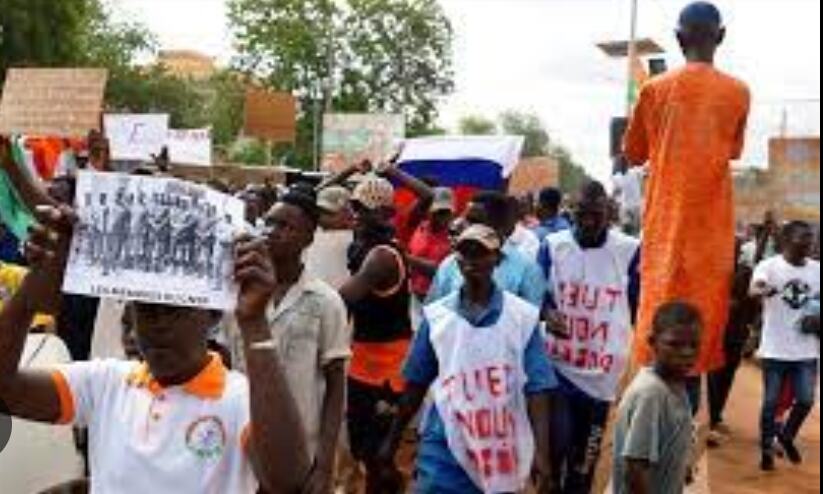Niger's Political Crisis Escalates: ECOWAS Contemplates Troop Deployment, Angering Civilians
The political crisis in Niger escalates as ECOWAS considers sending troops to reinstate the ousted president. However, this move sparks civilian anger, highlighting the challenges of fighting terrorism and maintaining civilian rule in the Sahel region.
The political crisis in Niger continues to escalate as the Economic Community of West African States (ECOWAS) considers the option of sending troops to reinstate ousted President Mohamed Bazoum. However, this move has sparked anger among civilians, who argue that ECOWAS should prioritize the fight against jihadist terrorism in the region. The rising tension between the junta and ECOWAS reflects two concerning trends in the Sahel region: the rapid spread of jihadist terrorism and the retreat of civilian rule as military coups become more prevalent.
Over the past decade, jihadist groups affiliated with Islamic State and al-Qaeda have expanded their presence in the Sahel, particularly in Burkina Faso, Mali, and Niger. These countries have experienced high levels of armed conflict, resulting in the deaths of more than 10,000 people last year alone. The inability of elected governments to effectively address the jihadist terror has eroded their legitimacy, leading to a series of military coups since 2020.
When Niger's government fell to a coup in July, regional leaders hoped to prevent a contagion of coups in the Sahel. However, the junta's defiance and the show of support from other military rulers in the region have complicated ECOWAS's efforts to resolve the crisis peacefully. ECOWAS had set a deadline for President Bazoum's reinstatement by August 6th, but the coup leaders showed no signs of relinquishing power. Instead, they rallied supporters and closed Niger's airspace, fueling tensions further. ECOWAS faces challenges not only from the junta and its allies but also from regional powers like Algeria and Chad, who oppose military intervention.
The regional bloc must consider the support or opposition of the Nigerien population towards foreign troops. A recent survey indicates that a majority of respondents support the junta's actions and are against intervention by regional or international organizations, with some expressing a preference for Russian involvement. In addition to lack of popular support, an ECOWAS intervention would be financially burdensome.
Nigeria, the largest economy in the region, would require external funding for such an operation. However, Western countries may be hesitant to provide financial support due to concerns about being seen as involved in the crisis. Furthermore, an ECOWAS mission in Niger would be highly complex and risky. The country's size and the support the junta receives from the military make it unlikely that a targeted operation to free President Bazoum would be successful.
A wider conflict could further destabilize Niger and neighboring northern Nigeria. While ECOWAS considers its options, there are voices cautioning against military intervention. A former adviser in the presidency warns that sending in troops would lead to unnecessary loss of life and plunge the country into war. Experts argue that the focus should be on finding a peaceful resolution and addressing the underlying issues of jihadist terrorism and instability in the region.
As tensions continue to rise, it remains to be seen whether ECOWAS will resort to military action or explore alternative political and diplomatic options to resolve the crisis. The situation in Niger serves as a reminder of the challenges faced by countries in the Sahel and the need for concerted efforts to address terrorism and promote good governance.




